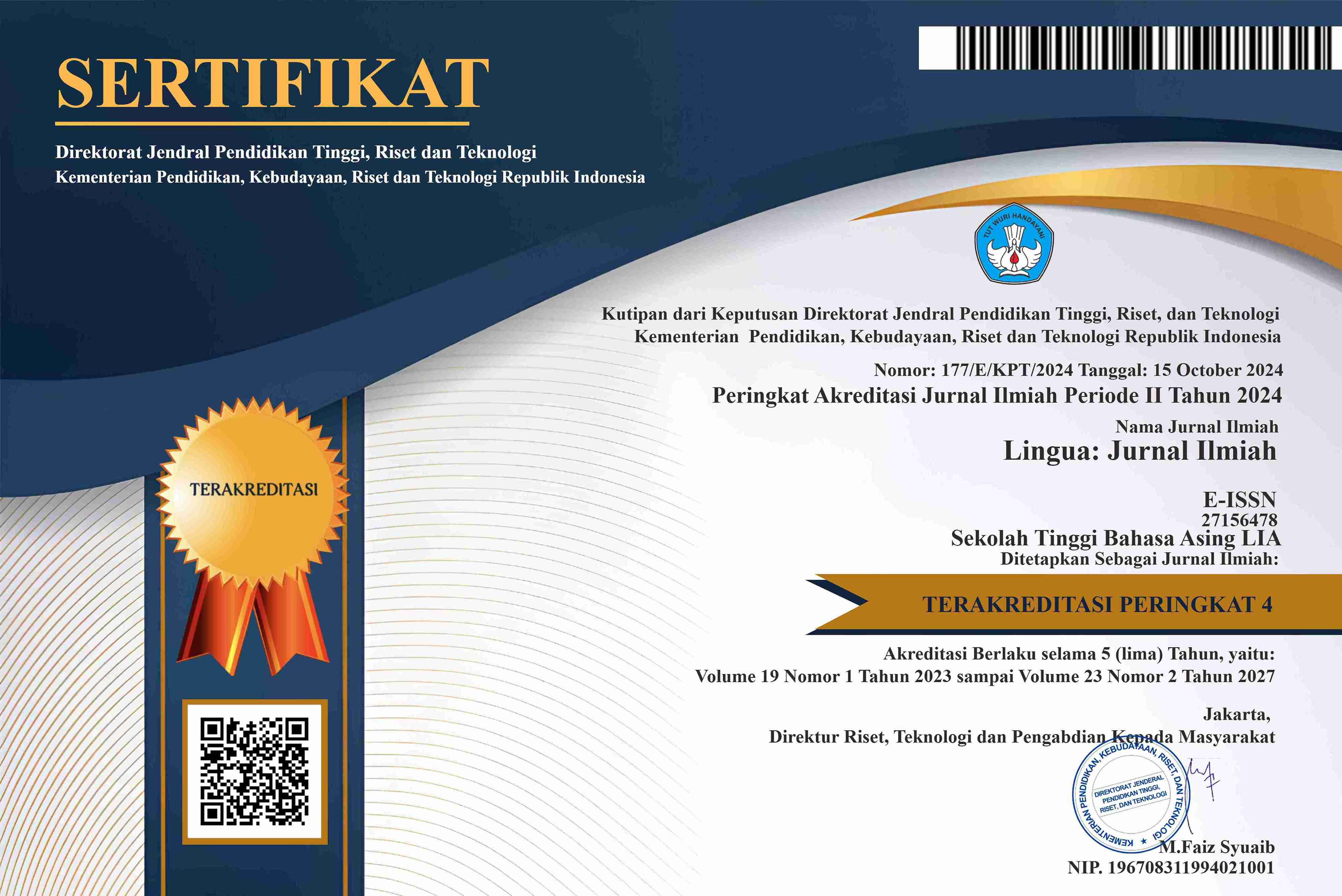PENGGUNAAN PARTIKEL KONJUNGSI ADVERSATIF (GYAKUSETSU NO SETSUZOKUJOSHI) ~TEMO DAN ~NONI PADA WACANA TEKS DALAM BUKU NEW APPROACH JAPANESE INTERMEDIATE COURSE
DOI:
https://doi.org/10.35962/lingua.v20i1.128Keywords:
English LanguageAbstract
The conjunction particles ~temo and ~noni have the same meaning when translated into Indonesian. This makes Japanese language learners quite confused in differentiating the use of these two conjunction particles. The data source in this research is sentences in the discourse of the New Approach Japanese Intermediate Course textbook. The author uses a qualitative descriptive method in conducting data analysis. First, the writer took data in the form of sentences that contained the adversative conjunctions ~temo and ~noni in the sentences. After that, the data was classified based on the meaning of the conjunction particles ~temo and ~noni according to Iori's theory (2000). Iori (2000) states that the conjunction particle ~temo is used when stating facts that contradict assumptions, can be used several times together with the antecedent in a sentence, can be used together with question words and can also be meaningful not as an adversative conjunction. Meanwhile,the conjunction particle ~noni are stating the difference between assumptions and realityw hich is followed by a feeling of disappointment or surprise from the speaker, the antecedent in sentences with the conjunction ~noni is already understood to be true so itc annot followed by the form of command, request and desire, then the conjunction particle~ noni can also show surprise at the antecedent. The result of this research is that them eaning of the conjunction particles ~noni and ~temo reveals more about the differences between assumptions and the reality that occurs. Apart from that, the particle ~temo in the data found is used together with question words and is used several times in one sentence.
Downloads
Published
How to Cite
Issue
Section
License
Copyright (c) 2025 Dinda Puteri Alhumaira, Shabrina Rahmalia

This work is licensed under a Creative Commons Attribution-NonCommercial-NoDerivatives 4.0 International License.
















